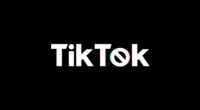Tax write-offs are an essential aspect of managing finances for any content creator. By understanding and utilizing tax write-offs, content creators can maximize their savings and reduce their taxable income. In this article, we will explore the eligibility criteria for content creator tax write-offs, as well as the various deductible expenses that can be claimed.
Key Takeaways
- Content creators may be eligible for tax write-offs to reduce their taxable income.
- Eligibility criteria include earning income from content creation and using expenses for business purposes.
- Deductible expenses can include home office expenses, equipment and software, travel expenses, marketing and advertising costs, and education and training expenses.
- To claim home office expenses, you must have a dedicated workspace used exclusively for business purposes.
- Retirement savings can also provide tax benefits for content creators. Start maximizing your savings today!
Eligibility Criteria for Content Creator Tax Write-Offs
To qualify as a content creator for tax purposes, one must engage in activities such as creating and distributing digital content, producing videos, writing blogs, or running a YouTube channel or podcast. It is important to keep accurate records and separate personal and business expenses to ensure eligibility for tax write-offs.
Content creators can take advantage of various tax write-offs, including home office expenses, equipment and software expenses, travel expenses, marketing and advertising costs, education and training expenses, and retirement savings. By understanding the eligibility criteria and deductible expenses, content creators can effectively manage their finances and reduce their taxable income.
Maximizing Your Savings with Deductible Expenses
Tax deductions are expenses that can be subtracted from your taxable income, reducing the amount of tax you owe. It is important for content creators to maximize their deductible expenses to minimize their tax liability. By keeping track of all eligible expenses throughout the year, content creators can significantly reduce their taxable income.
Some examples of deductible expenses for content creators include internet and phone bills, website hosting fees, software subscriptions, camera equipment, microphones, lighting equipment, travel expenses related to content creation, marketing and advertising costs, education and training expenses, and contributions to retirement plans.
Home Office Expenses: How to Claim Them
| Expense Type | Description | Eligibility | Claimable Amount |
|---|---|---|---|
| Office Supplies | Paper, pens, printer ink, etc. | Used for work purposes | Actual cost |
| Internet and Phone | Monthly bills for internet and phone services | Used for work purposes | Percentage of total bill based on work usage |
| Home Office Equipment | Desk, chair, computer, etc. | Used exclusively for work purposes | Depreciated cost over several years |
| Utilities | Electricity, heating, cooling, etc. | Used for work purposes | Percentage of total bill based on work usage |
| Travel Expenses | Transportation, meals, lodging, etc. | Traveling for work purposes | Actual cost |
For many content creators, a significant portion of their work is done from a home office. To claim a home office deduction, the space must be used exclusively for business purposes. This means that it cannot be used for personal activities. The IRS offers two methods for calculating the home office deduction: the simplified method and the regular method.
The simplified method allows content creators to deduct $5 per square foot of the home office space, up to a maximum of 300 square feet. The regular method requires content creators to calculate the actual expenses associated with their home office, including rent or mortgage interest, utilities, insurance, and maintenance costs. It is important to keep accurate records of these expenses to support the deduction.
Equipment and Software: What Can You Write-Off?
Content creators often rely on various equipment and software to produce their content. These expenses can be deducted as business expenses, reducing taxable income. Equipment such as cameras, microphones, tripods, and lighting equipment can be written off as long as they are used exclusively for business purposes.
Software subscriptions, editing programs, and website hosting fees are also deductible expenses for content creators. It is important to keep accurate records of these expenses, including receipts and invoices, to support the deduction.
Travel Expenses: How to Keep Track of Them

Content creators often travel for various purposes related to their work, such as attending conferences, meeting clients, or shooting on-location videos. These travel expenses can be deducted as long as they are directly related to the content creation business.
To claim travel expenses, content creators must keep accurate records of all expenses incurred during the trip, including transportation costs, accommodation fees, meals, and any other necessary expenses. It is important to keep receipts and invoices as proof of these expenses.
Marketing and Advertising: Claiming Your Costs
Marketing and advertising are essential for content creators to promote their work and reach a wider audience. These costs can be deducted as business expenses, reducing taxable income. Examples of deductible marketing and advertising expenses include social media advertising fees, website design and maintenance costs, promotional materials, and fees paid to marketing agencies or consultants.
To claim these expenses, content creators must keep accurate records of all marketing and advertising costs, including receipts and invoices. It is important to clearly demonstrate that these expenses were incurred for business purposes.
Education and Training: Deductible Expenses for Content Creators
Ongoing education and training are crucial for content creators to stay updated with the latest trends and techniques in their field. These expenses can be deducted as long as they are directly related to the content creation business.
Examples of deductible education and training expenses for content creators include online courses, workshops, conferences, books, subscriptions to industry publications, and fees paid to coaches or mentors. It is important to keep accurate records of these expenses, including receipts and invoices, to support the deduction.
Retirement Savings: Tax Benefits for Content Creators
Retirement savings are an important aspect of financial planning for content creators. By contributing to a retirement plan, content creators can not only secure their future but also enjoy tax benefits. There are various retirement plans available to content creators, such as Individual Retirement Accounts (IRAs), Simplified Employee Pension (SEP) IRAs, and Solo 401(k) plans.
Contributions to these retirement plans are tax-deductible, reducing taxable income. Additionally, the earnings on these contributions grow tax-deferred until withdrawal during retirement. By taking advantage of these retirement plans, content creators can maximize their savings and enjoy tax benefits.
Start Maximizing Your Savings Today
Understanding tax write-offs is crucial for content creators to effectively manage their finances and maximize their savings. By taking advantage of eligible deductible expenses such as home office expenses, equipment and software costs, travel expenses, marketing and advertising costs, education and training expenses, and retirement savings, content creators can significantly reduce their taxable income.
It is important for content creators to keep accurate records of all eligible expenses throughout the year to support their deductions. By doing so, they can minimize their tax liability and maximize their savings. Start maximizing your savings today by taking advantage of tax write-offs and visit the link in the bio for more information on maximizing savings.
If you’re a content creator looking for valuable information on tax write-offs, you won’t want to miss this insightful article from Linkinbio.blog. This article dives deep into the world of tax deductions specifically tailored for content creators, providing you with essential tips and strategies to maximize your savings. Whether you’re a blogger, vlogger, or social media influencer, understanding the intricacies of tax write-offs can make a significant difference in your financial planning. Don’t miss out on this must-read resource! Check it out here and get ready to take control of your taxes.
FAQs
What is a content creator?
A content creator is someone who produces and publishes content online, such as videos, blog posts, podcasts, or social media posts.
What is a tax write off?
A tax write off is a deduction that reduces the amount of income that is subject to taxation. It can lower the amount of taxes owed and increase the amount of a tax refund.
What tax write offs are available for content creators?
Content creators can write off expenses related to their business, such as equipment, software, internet and phone bills, travel expenses, and home office expenses.
What equipment can content creators write off?
Content creators can write off equipment used for their business, such as cameras, microphones, computers, and editing software.
Can content creators write off their home office expenses?
Yes, content creators can write off expenses related to their home office, such as rent, utilities, and internet bills. However, the home office must be used exclusively for business purposes.
What travel expenses can content creators write off?
Content creators can write off travel expenses related to their business, such as airfare, lodging, and meals. However, the trip must be primarily for business purposes.
What records should content creators keep for tax purposes?
Content creators should keep records of all business-related expenses, including receipts, invoices, and bank statements. They should also keep track of their income and any taxes paid throughout the year.





